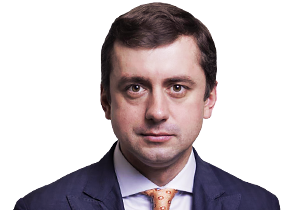The ruling of the United Nations International Court of Justice in The Hague has a weight in proving Russia's violation of international law. No one in the international community argues about the status of the Ukrainian peninsula, with the exception of some Russian satellites (only the unrecognized republics of Abkhazia, South Ossetia, Nagorno-Karabakh, as well as Kazakhstan and Kirghizstan recognized a pseudo-referendum in Crimea on the accession to Russia).
However, the court will not be able to get Russia to withdraw from Donbas and Crimea.
If Russia is accused of financing terrorism, Turkey may demand the same move against the United States, since Washington supported Kurdish separatists in northern Syria who fought against regular Turkish troops
The ICJ is the body with the highest authority in the international judiciary so its ruling on Russia's violation of international law, namely, the rights of the Crimean Tatars and Ukrainians on the peninsula would be very important. And even more important is the case where the ICJ could prove that Russia violated the Convention on the Financing of Terrorism.
According to Ukrainian media, the convention has never been applied before, as it could open a "Pandora's box". In other words, if Russia is accused of financing terrorism, Turkey, for example, may demand the same move against the United States, since Washington supported Kurdish separatists in northern Syria who fought against regular Turkish troops.
It is also important to understand that the recent ICJ did not accuse Russia but merely decided on the case admissibility, confirming its jurisdiction over the claim lodged by Ukraine. It was at this stage that the Russians tried to object. Apparently, they felt confident in the victory, because they won a similar case against Georgia 10 years ago because of the mistakes made by the Georgian side...
As for the ultimate court verdicts, lawyers say they can be expected no earlier than 2022. The least Ukraine can claim from Russia is compensation. However, compensation is not the main thing Ukraine is seeking.
Now the world community is undergoing a simple choice phase, where on the scales is the weight of international law – the reaction and moves of state actors that had once formed the body of international law and adhered to it permanently – and the opportunity to turn a blind eye to violations of international law for the sake of "reconciliation" with Russia. But for Ukraine, this is the only chance to prove to the world community a clear rule: the country that violates international law deserves punishment. It's up to the court to determine the scale of such punishment but the very fact that the violations are proven and not forgotten would be a clear victory of "power of law" over "power of force."
Russia hasn't responded to the ICJ ruling. However, it is not difficult to predict their upcoming reaction. Procedural decisions made by judges and the trial as a whole will be used by the Russians as bargaining chips in Donbas de-escalation talks. They will offer Ukraine to first drop the claims before the sides could talk on the merits.
Silence in the Russian media means Moscow admits defeat in court, so Moscow will build its tactics toward further blackmail – not only of Ukraine, but also France and Germany
For example, the issue has already been linked to energy, including gas transit, which paints the latter in political, rather than market-economic colors. It should be recalled that the Russians have pulled their "wild card": "Want to talk about transit? No problem, but let's nullify all arbitration claims, then we'll talk transit and pricing. But in reality, this is a common blackmail that the Russians apply as they know that the Ukrainian side really needs a Normandy Four summit.
The same could be applied to ICJ rulings. Silence in the Russian media means Moscow admits defeat in court, so Moscow will build its tactics toward further blackmail – not only of Ukraine, but also France and Germany.
It is difficult to imagine that the Kremlin recognizes the verdict of the UN court. But, again, they could use it to further delay the Donbas settlement process.
It is logical that the process of de-escalation should begin with the official recognition of the facts of Russia's financing of terrorism and, consequently, the Kremlin's conscious support of separatists in the Ukrainian territory. Recognizing this through an international court would effectively disarm skeptics who have speculated on the issue for years.
At the same time, the UN court ruling strengthens Ukraine's position in the international arena, and especially in the negotiations on Crimea and Donbas. However, it gives no guarantees that Russia will implement and recognize the decision. Again, it all depends on the geopolitical bargaining that is now underway.
Taras Semeniuk is an analyst with KyivStratPro


